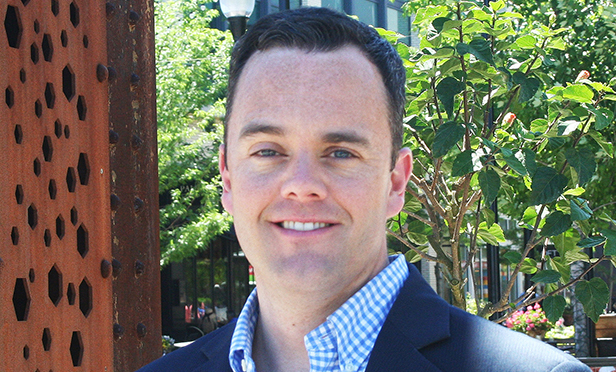 Furze: “As asset managers, we form a strong partnership with our property managers to achieve our number-one goal: to create an experience that will draw customers.”
Furze: “As asset managers, we form a strong partnership with our property managers to achieve our number-one goal: to create an experience that will draw customers.”
BOSTON—The ever-changing retail landscape—you know, the virtual one, marked by no landscape at all–doesn't faze Bryan Furze, VP of asset management for Federal Realty Investment Trust. He knows his team of in-house and third-party property managers need to stay on top of their game to ensure the retail experience drives consumers to the REIT's 105 major-market shopping centers.
Or, as he puts it, “When someone decides to drive somewhere, I want them to think of my location first. That's our primary goal as asset and property managers.” Lesser beings might throw up their hands at that goal, given the growing sway of internet shopping.
Not Federal, as Furze will explain when he arrives at the Global Summit of the Institute of Real Estate Management (IREM) September 26 through 29 in Hollywood, FL. There, he will join two panels appropriate to the topic: “Technology, Millennials and the Evolution of the Shopping Center,” and “What Asset Managers Want From Their Third-Party Property Managers.”
The retail disruption, despite what you might have read, isn't something that cropped up with the arrival of millennials as a powerhouse shopping cohort. “I don't think the disruption is a millennial-only issue,” Furze tells GlobeSt.com. “Maybe it started with millennials, but it's transcended that, and caught on with their parents and even their grandparents. That the millennials have embraced it so much, and it has transcended into other groups, means that it's here to stay.”
Honing the Right Approach
Which begs the question: What is the brick-and-mortar retailer—and property manager and landlord—to do?
“Our job as landlords and property managers is to do everything we can to make the experience and the convenience of the property the best it can be,” he says. “We're laser-focused on the total experience, like getting out of the car and having beautiful flowers in front of you. We make sure the access, the signage are both appropriate. We ensure that customers feel safe and welcome, and that our merchandising mix is appropriate. We want our assets seen as one-stop shopping centers, whether it's needs-based shopping or a fancy night out. We want our assets to be the first and last place a consumer thinks to go.”
Of course, experience doesn't negate technology. Furze indicates that knowing the demographic of the local population is key, and big data, including demographic insight gleaned from cell phones, is one sure-fire way to confirm the center is attracting the right demo. More important, it can also be used to determine if the right demo isn't showing up at all.
“Which speaks to how the retailer and the property are marketing themselves,” he states. “We need to create the proper experience for the local population, to provide the proper marketing, as well as the proper infrastructure.” And it is in this latter need that property managers play a pivotal role.
“Property managers are uniquely qualified to help us understand the infrastructure—what we have today and what we will need going forward, especially in older properties,” says Furze. “Our retailers are already asking questions about bandwidth and connectivity, and how they can respond to the technological needs of their customers, even before they come in the door. Answering those questions before they're asked is a critical part of being a successful property manager today.”
Many of those questions are answered in advance by aggressive leasing and outreach programs. “Our centers need to have options for flexible leases in order to accommodate popup and alternative retail,” says Furze, “which are becoming a larger part of the retail culture.”
No Longer a Passive Entity
More than ever, a retail center isn't a standalone, passive entity, relying on visitors to come in. Rather, “we need to reach out and engage the larger local population with participation and support of local community events and activities.” It is the property manager who can keep abreast of those activities.
A traditional function fills those cutting-edge expectations, says Furze: “Property managers need to be the first line of communication with our tenants, finding out if they're happy or if there's a problem and what their expectations are. We rely very much on our property managers to be proactive and find out what's going on.”
There's a triple-play aspect to that reliance that extends from the satisfaction of the customer, to the contentment of the retail tenant and ultimately to the success of the property and asset managers.
“As asset managers, we form a strong partnership with our property managers to achieve our number-one goal: to create an experience that will draw customers.” As the growth of the internet continues, time, says Furze, becomes more of a commodity. “If potential customers are using that precious, commoditized time to come here and spend money, we need to make them feel comfortable.”
© Touchpoint Markets, All Rights Reserved. Request academic re-use from www.copyright.com. All other uses, submit a request to [email protected]. For more inforrmation visit Asset & Logo Licensing.







